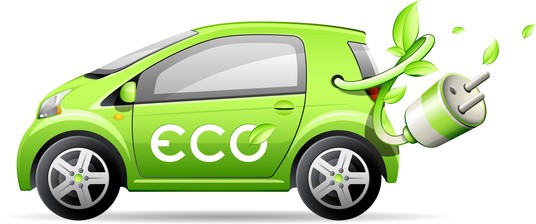Electric cars have gained in popularity in recent years due to their undeniable ecological advantages. However, it’s important to consider all aspects, including potential drawbacks, before making the leap to this more sustainable mode of transport. In this article, we’ll take a close look at the benefits and drawbacks of fuel-free vehicles, using factual data to help you make an informed decision.
Electric cars and the environment
Zero-emission vehicles have gained in popularity in recent years due to their environmental benefits. With growing concerns about climate change and air pollution, more and more people are turning to electric cars as a cleaner alternative to gasoline-powered vehicles. These thermal vehicles use electric motors powered by rechargeable batteries, eliminating greenhouse gas emissions and reducing air pollution. In this section, we’ll explore the ecological benefits of eco-friendly cars and why they’re seen as a more environmentally-friendly solution.
Reducing greenhouse gas emissions
Electric vehicles play an essential role in the fight against climate change by limiting greenhouse gas emissions. Here are some of the key environmental benefits of electric vehicles:
Zero direct emissions
Electric vehicles produce no direct CO2 emissions when in operation. Unlike gasoline-powered vehicles, which emit harmful gases such as carbon dioxide and nitrogen oxides, electric vehicles run entirely on electricity and produce no polluting emissions.
Reducing air pollution
As well as reducing carbon dioxide emissions, electric vehicles also help to reduce air pollution. Emissions of atmospheric pollutants such as fine particles and nitrogen oxides are considerably lower than for gasoline-powered vehicles. This improves air quality in urban areas and reduces the health risks associated with air pollution.
Use of natural resources
Electric cars offer many advantages in terms of the use of natural resources and sustainability. Here are some key points to consider:
1. Lower consumption of raw materials: zero-emission cars require fewer raw materials than conventional cars. For example, electric motors are simpler and require fewer components than internal combustion engines.
2. Battery recycling : The batteries used in eco-friendly cars can be recycled. This allows materials to be reused and limits the extraction of new resources. With batteries, a combustion-powered vehicle offers many advantages over a petrol or diesel car.
It’s important to stress that the increased use of electric cars is helping to reduce our ecological footprint and preserve our natural resources.
Impact on climate change
Thanks to their emission-free operation and high energy efficiency, fuel-free cars play a key role in the fight against climate change. Here’s how they help reduce environmental impact:
Reducing dependence on fossil fuels
Electric cars are not dependent on fossil fuels such as petrol or diesel. They are mainly powered by renewable energy sources, such as solar or wind power, reducing our dependence on fossil fuels and contributing to the transition to a greener economy.
Contributions to reducing CO2 emissions
Eco-friendly vehicles produce no direct carbon dioxide emissions when they’re on the road. This means they don’t contribute to the rising levels of carbon dioxide (CO2) in the atmosphere, which is responsible for global warming. Compared to cars with internal combustion engines, zero-emission cars are much cleaner and help to significantly reduce CO2 emissions.
Green infrastructure for electric cars
Development of charging networks
The development of an efficient and extensive recharging network is essential to encourage the widespread adoption of fuel-free cars. Governments and energy companies are actively working to set up fast, accessible recharging stations in urban and rural areas. These charging infrastructures offer electric drivers the possibility of easily recharging their vehicles, helping to alleviate concerns about the limited range of electromechanical cars.
Integration of renewable energies
Another major advance in electric cars is the integration of renewable energies in the recharging process. Using solar panels and wind turbines, charging stations can generate green electricity to power electric cars. This further reduces the carbon footprint of eco-friendly cars, making their use truly environmentally sustainable. This combination of fuel-efficient vehicles and renewable energies is an important step towards an ecological and sustainable future.
The overall ecological benefits of electric cars
In conclusion, electric cars offer numerous ecological advantages, making them an attractive solution for the future of mobility. Here are some of the main ecological advantages that eco-friendly cars offer:
1. Reduced greenhouse gas emissions: Fuel-free vehicles produce zero emissions when powered by clean electricity, helping to reduce CO2 concentrations and combat climate change.
2. Improved air quality: Eco-friendly cars don’t produce harmful exhaust fumes, which limits air pollution and improves air quality in urban areas.
3. Reduced dependence on fossil fuels: Electric cars use electricity as their energy source, weakening dependence on fossil fuels and contributing to the transition to renewable energy sources.
Thermal cars offer many eco-responsible advantages. Firstly, the presence of an electric gearbox makes power transmission more efficient. Unlike internal combustion engine cars, which require a complex multi-speed transmission, electric cars can operate in a single gear, reducing energy losses and improving overall vehicle efficiency.
Key points to remember
- Electric cars offer many environmental benefits, including reduced emissions of harmful particulates, improved air quality and reduced dependence on fossil fuels.
- Using clean electricity to power electric cars is essential to maximize their ecological benefits. The existence of each recharging point means that thermal cars can be quickly charged.
- Governments and manufacturers around the world are recognizing the environmental benefits of electric cars and encouraging their adoption through tax incentives and charging infrastructure.
- The continuing expansion of charging networks and improvements in battery technology are making electric cars increasingly attractive to consumers.
- The transition to internal combustion engine cars is essential if we are to meet the emission reduction targets set by the Paris Climate Agreement.
In short, electric cars offer a cleaner, more sustainable solution for mobility. Their widespread adoption will help to significantly reduce CO2 emissions and preserve our environment for future generations.

